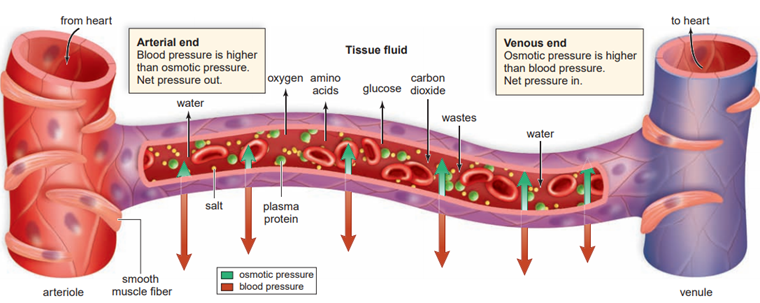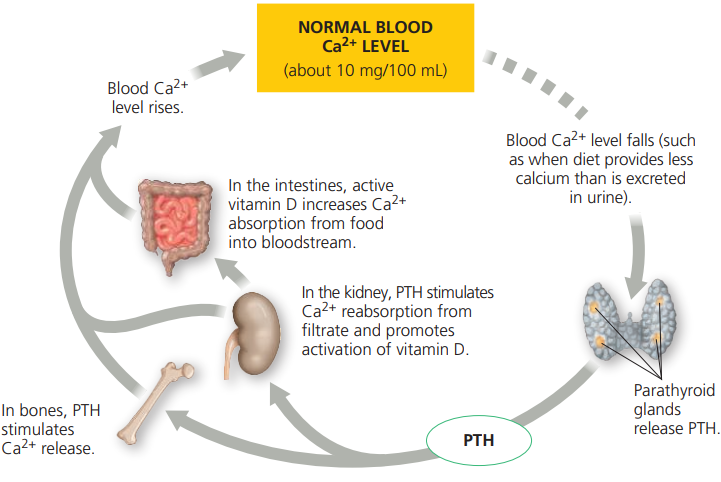The roles of parathyroid hormone (PTH) in regulating the blood calcium level in mammals.

The roles of parathyroid hormone (PTH) in regulating the blood calcium level in mammals.
Control of blood calcium
Because calcium ions (Ca2+) are essential to the normal functioning of all cells, homeostatic control of the level of calcium in the blood is vital.
If the blood Ca2+ level falls substantially, skeletal muscles contract convulsively, a potentially fatal condition.
If the blood Ca2+ level rises substantially, calcium phosphate can form precipitates in body tissues, leading to widespread organ damage.
In mammals, the parathyroid glands, a set of four small structures embedded in the posterior surface of the thyroid, play a major role in blood Ca2+ regulation.
When the blood Ca2+ level falls below a set point of about 10 mg/100 mL, these glands release parathyroid hormone (PTH).
PTH raises the level of blood Ca2+ through direct effects in bones and the kidneys and an indirect effect on the intestines.
In bones,
PTH causes the mineralized matrix to break down, releasing Ca2+ into the blood.

In the kidneys,
PTH directly stimulates the reabsorption of Ca2+ through the renal tubules.
In addition,
PTH indirectly raises the blood Ca2+ level by promoting vitamin D production.
A precursor form of vitamin D is obtained from food or synthesized by skin exposed to sunlight.
Conversion of this precursor to active vitamin D begins in the liver.
PTH acts in the kidney to stimulate the completion of the conversion process.
Vitamin D acts on the intestines, stimulating the uptake of Ca2+ from food.
As the blood Ca2+ level rises, a negative feedback loop inhibits further release of PTH from the parathyroid glands.
The thyroid gland can also contribute to calcium homeostasis.
If the blood Ca2+ level rises above the set point, the thyroid gland releases calcitonin, a hormone that inhibits bone breakdown and enhances Ca2+ excretion by the kidneys.
In fishes, rodents, and some other animals, calcitonin is required for Ca2+ homeostasis.
In humans, however, calcitonin is needed only during the extensive bone growth of childhood.
Join Enlighten Knowledge WhatsApp platform.
Join Enlighten Knowledge Telegram platform.





